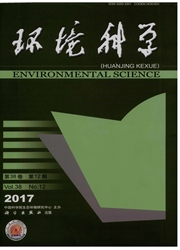

 中文摘要:
中文摘要:
对柴油机排气微粒在冷却条件下的演变特性进行了实验研究.结果表明,排气的冷却作用对微粒的质量浓度具有重要的影响.引起微粒质量浓度变化的主要原因是排气中气态碳氢的冷凝,从而增加了微粒的质量浓度.排气的冷却促使柴油机微粒增大,分布在0.01-1.0μm粒径范围内的微粒数量有所减少,特别是小于0.1μm以下的小微粒,微粒数量下降的幅度相对较大,并且冷却温度越低,变化越明显.排气冷却后,0.1-1.0μm粒径范围内的微粒体积浓度呈减少的趋势.此外,流速对排气冷却条件下的微粒演变特性亦有一定的影响,随排气流速的降低,0.01-1.0μm粒径范围内的微粒数量浓度和体积浓度减小.
 英文摘要:
英文摘要:
Experimental research on the evolution characteristics of diesel particles under the cooling conditions has been carried out. The results showed that the cooling of the exhaust had important effect on the mass concentration of the diesel particles in the exhaust. The main cause that resulted in the change of the particle mass concentration was the condensation of gaseous hydrocarbon on the particle surface or existing in the form of liquid drop. The cooling of the exhaust promoted the increasing of the particle dimension and the decreasing of the particle numbers, especially for the smaller particles below 0.1μm. The cooling temperature of the exhaust had important effect on the evolution of diesel particles. After exhaust cooling, the volume concentration of diesel particles between 0.1 μm and 1.0 μm exhibited a tendency of decreasing. Moreover, exhaust velocity also had effect on the evolution of the diesel particles. The number concentration and volume concentration of the diesel particles between 0.01 μm and 1.0μm decreased along with the decreasing of the exhaust velocity.
 同期刊论文项目
同期刊论文项目
 同项目期刊论文
同项目期刊论文
 期刊信息
期刊信息
